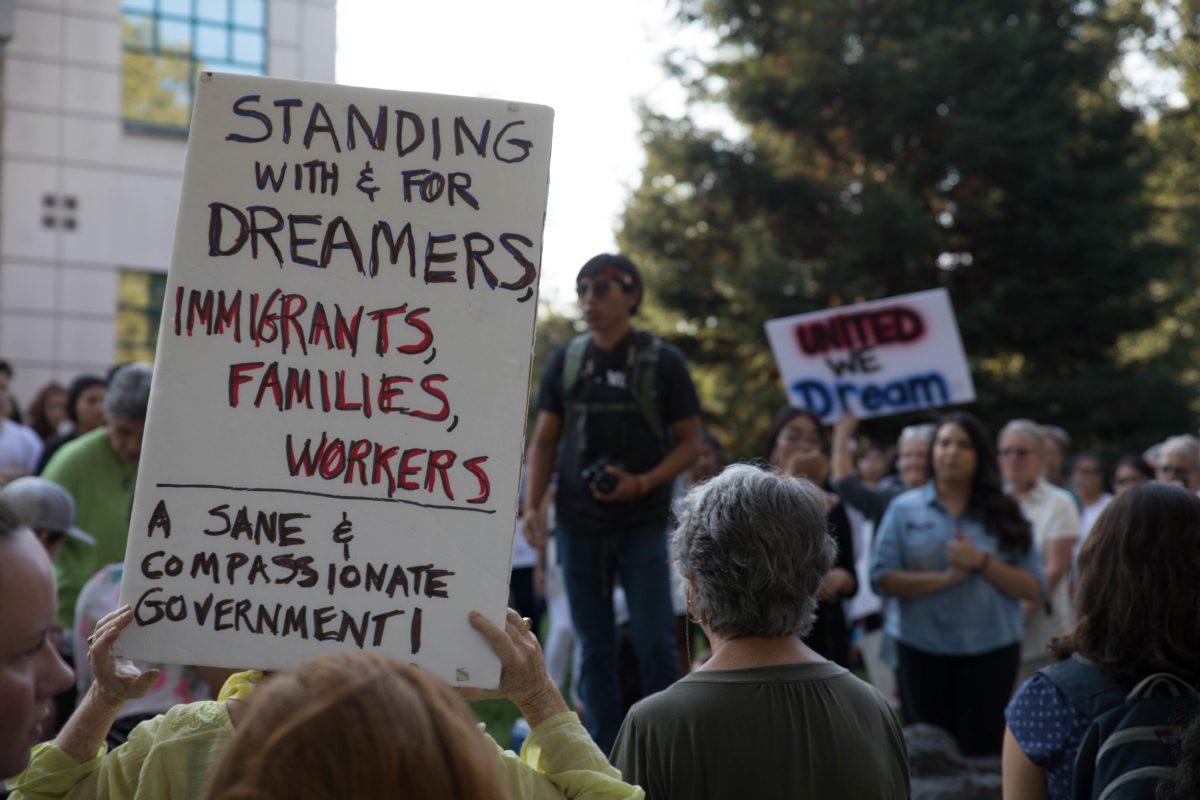“What now?”
That is the question that many undocumented students are asking after the Sept. 5 cancellation of the Deferred Action for Childhood Arrivals program.
President Donald Trump has rescinded the program that benefits around 800,000 undocumented individuals who entered the country as children.
If Congress fails to come up with a replacement plan in six months, DACA recipients will be at risk of losing their work permits, driver’s licenses, protection from being deported, and for many, the only home they have ever known.
Some Sonoma State University faculty members and student leaders have come out in support of undocumented students through statements of solidarity.
In a Sept. 5 email, Sonoma State President Judy K. Sakaki expressed her commitment to the success of all DACA students at Sonoma State.
“We will support our DACA students, within the law, and help them progress in their lives,” Sakaki said. “We must also urge members of Congress to work toward a solution for our dreamers.”
Across campus, there were reactions of shock and dismay. Students were quick to act and organize a peaceful protest that began in front of the library on the day of Trump’s announcement.
Hundreds of people showed up at the protest to march in support of undocumented students.
Omar Santiago, a senior history major and current president of the UndocuScholars Coalition, is a DACA recipient who said he is ready to bring the community together and take action.
“If it’s not me, then who’s going to do it?” Santiago said. “I have to speak up for other people who might feel uncomfortable, and I understand why, but this is a time when we have to come together and rise up together.”
Trump has delayed the end of DACA by six months and urged Congress to come up with a solution by March 2018.
During this extension, Undocu-Resource Center coordinator Mariana Martinez said she encourages DACA students to stay up to date with news, and to renew work permits that will expire between now and March 5.
Lauren Morimoto, a kinesiology professor and director of diversity and inclusive excellence, said she advises undocumented students to find someone they trust in order to comfortably express feelings and to figure out what to do next.
“Though I wasn’t surprised, I’m so disappointed in our government,” Morimoto said. “These are my fellow citizens, and you’re treating them like they’re outsiders when they’re not. It’s infuriating.”
Morimoto encouraged students to attend upcoming protests and events being organized in support of DACA, and to become aware of all the people standing behind them and supporting them.
Morimoto said she is optimistic in regards to a possible solution to save DACA before the deadline arrives.
“I’m hopeful,” Morimoto said, “but it’s going to be through pressure from the public and through continuous fighting for it.”
Michelle Violetti, a junior communications major, said she also hopes for a solution to the issue. “It was really emotional because I have met DACA students and heard their stories,” Violetti said. “I know the fear and anxiety that they are going through.”
Violetti said she is hopeful for a positive change regarding DACA, but understands that it won’t be simple.
“There needs to be effort from many individuals to speak up and take action for any change to occur,” Violetti said.
Across the nation, several communities have already taken action through peaceful protests, phone banks, letters to senators and social media posts.
The amount of support has been extensive, but the fight for at-risk undocumented students has just begun.
“What I would say to DACA students is to stick together,” Santiago said. “Come out of the shadows and unite as one because numbers play a big part, and the bigger the group we create, the faster we will get a solution.”



































